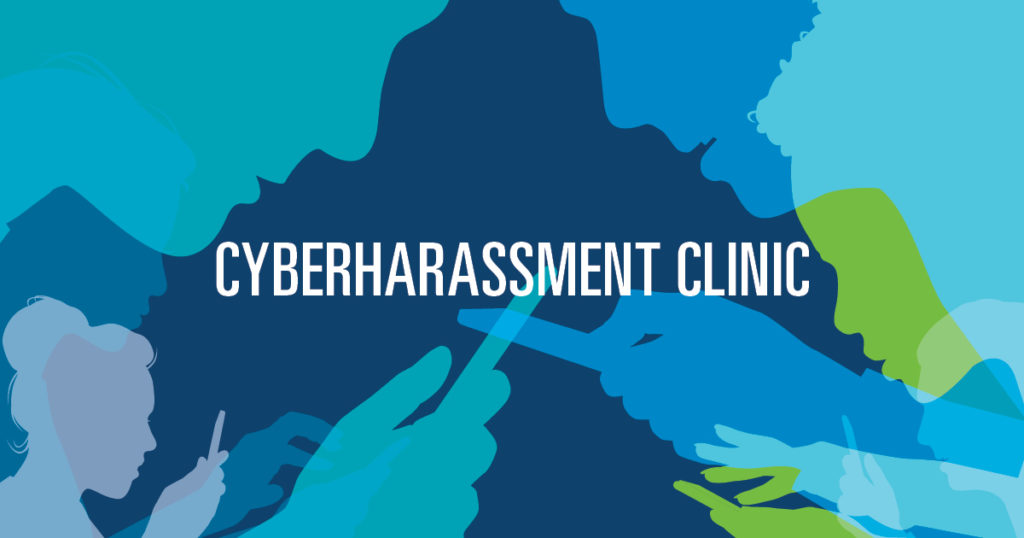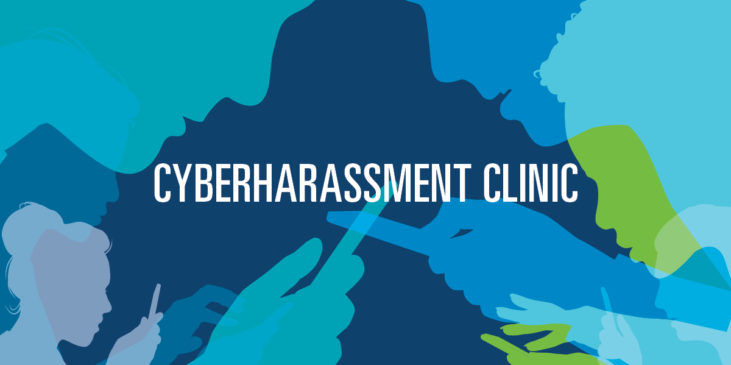
NYLS’s Cyberharassment Clinic, led by Adjunct Professor Andrew Sta. Ana, provides an unprecedented opportunity for law students to represent victims of online harassment by counseling individuals and advocating for broader protections. The Cyberharassment Clinic is the first and only law school clinic representing clients in this space.
During the 2020–21 academic year, Antonia Bracca ’21, Brian Brantley ’21, Kristina Hernandez ’21, Brianna Jimenez ’21, Christina Pasaturo ’21, Bryn Ritchie 4L Evening, Gina Rodriguez ’21, and Shukra Sabnis 4L Evening worked with clients around New York. The clinic students had the opportunity to work on various matters for victims of cyberharassment and victims advocacy.
Advocating for Clients
In one case, “G,” a college student, was being stalked by a former partner at her place of employment and in her neighborhood. G’s ex sent her disturbing messages on social media, threatened to show up at her job, and posted pictures in front of her home and place of employment. G previously sought protection by reporting the behavior she experienced to the police. The stalking behavior took a toll on G’s education and her ability to participate in classes, so clinic students drafted a letter to her university helping her seek accommodations during the end of her school year. Clinic students also drafted letters to her employer to support her desire to seek a location transfer and change her schedule accordingly. G was comforted by the advocacy beyond merely reporting the behavior to the police.
In another case, clinic students provided support to a college student seeking an order of protection against a former boyfriend. “A” met her ex at school, and they lived in the same dorm. When their relationship ended, A received continuous harassment and violent messages from her ex, including threats to sexually assault her, wishes for her death, and sexually-explicit photos. After her ex dropped out of school, A sought a civil order of protection against him. The clinic students drafted a petition on her behalf and worked with her to explore ways to serve her ex-boyfriend with service of process through non-traditional means. A team of students drafted a memo on alternate means of service of process through social media, such as Instagram, detailing the steps a petitioner could take to satisfy requirements under the New York Civil Practice Law and Rules (CPLR).
In another matter, the clinic students worked with a young survivor who sought to take down sexually-explicit images that were posted of her without her consent. “R” explicitly did not want to report to the police and did not want to pursue a case through civil action at this time. As a result, in consultation with the client, the clinic advised R of her options and supported her by drafting an advocacy letter on her behalf, demanding that the images be taken down and destroyed.
Researching Cyberharassment Legislation
Since its inception, clinic students have advocated for broader protections in matters of cyberharassment, including participating in the Cyber Sexual Abuse Taskforce, which laid the foundation for New York State’s passage of a 2019 law criminalizing non-consensual pornography, and providing testimony to the New York City Council on the impact of cyberharassment in New York City public schools.
In the past year, the Cyberharassment Clinic has continued to monitor and research Healthy Relationships legislation in New York. Such legislation would implement age-appropriate, medically accurate, LGBTQ-inclusive education for New York State public school students K–12. The clinic students seeking to advocate for both prevention and intervention measures to address cyberharassment tracked efforts to change the law in New York to include prevention strategies that address online behavior, LGBTQ experiences, and dating violence and sexual harassment.

